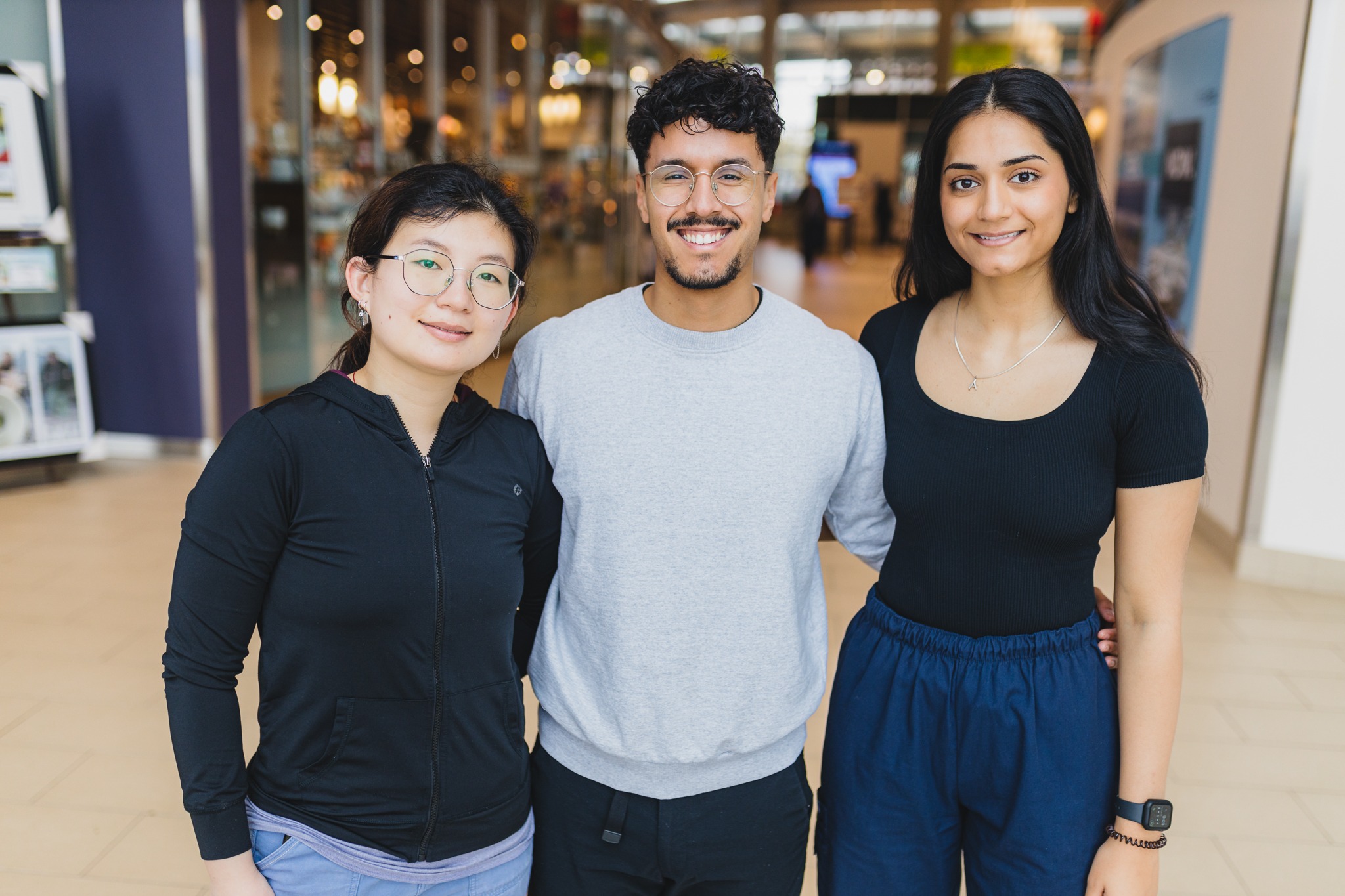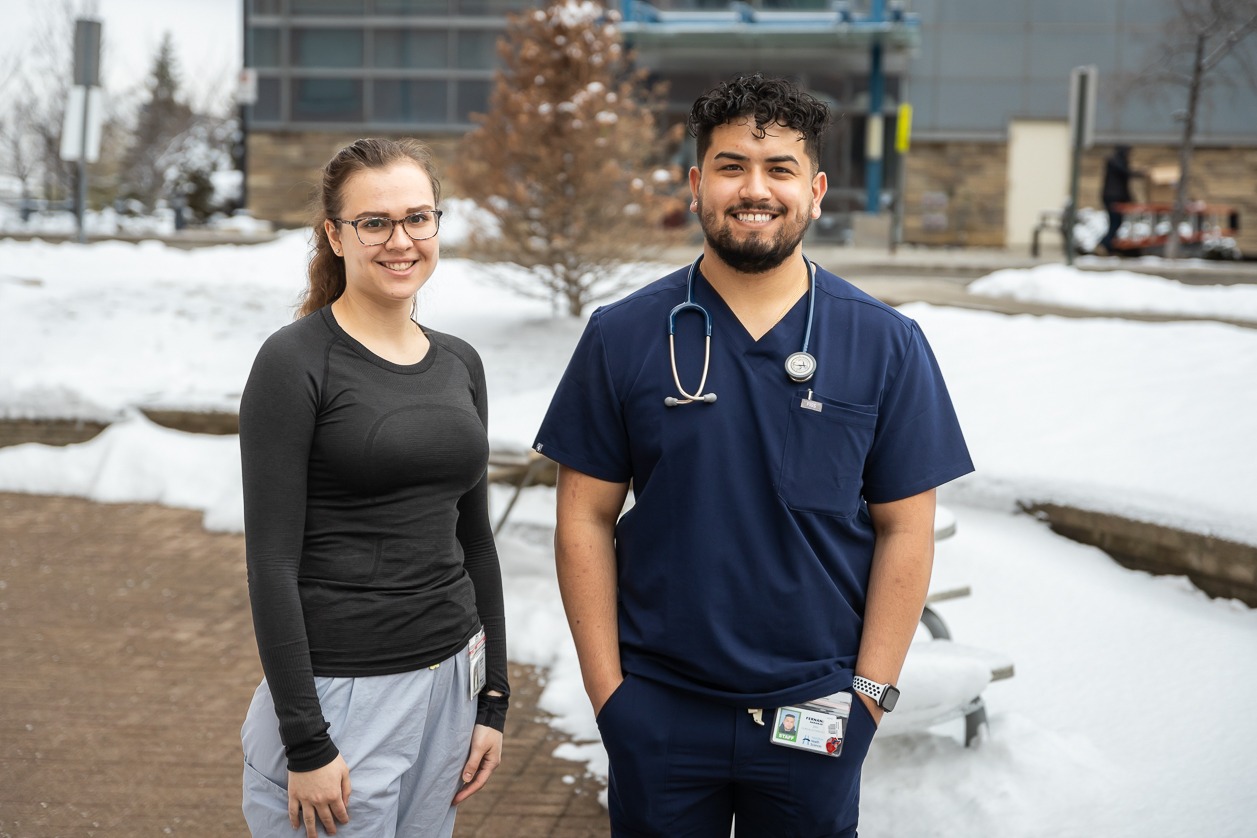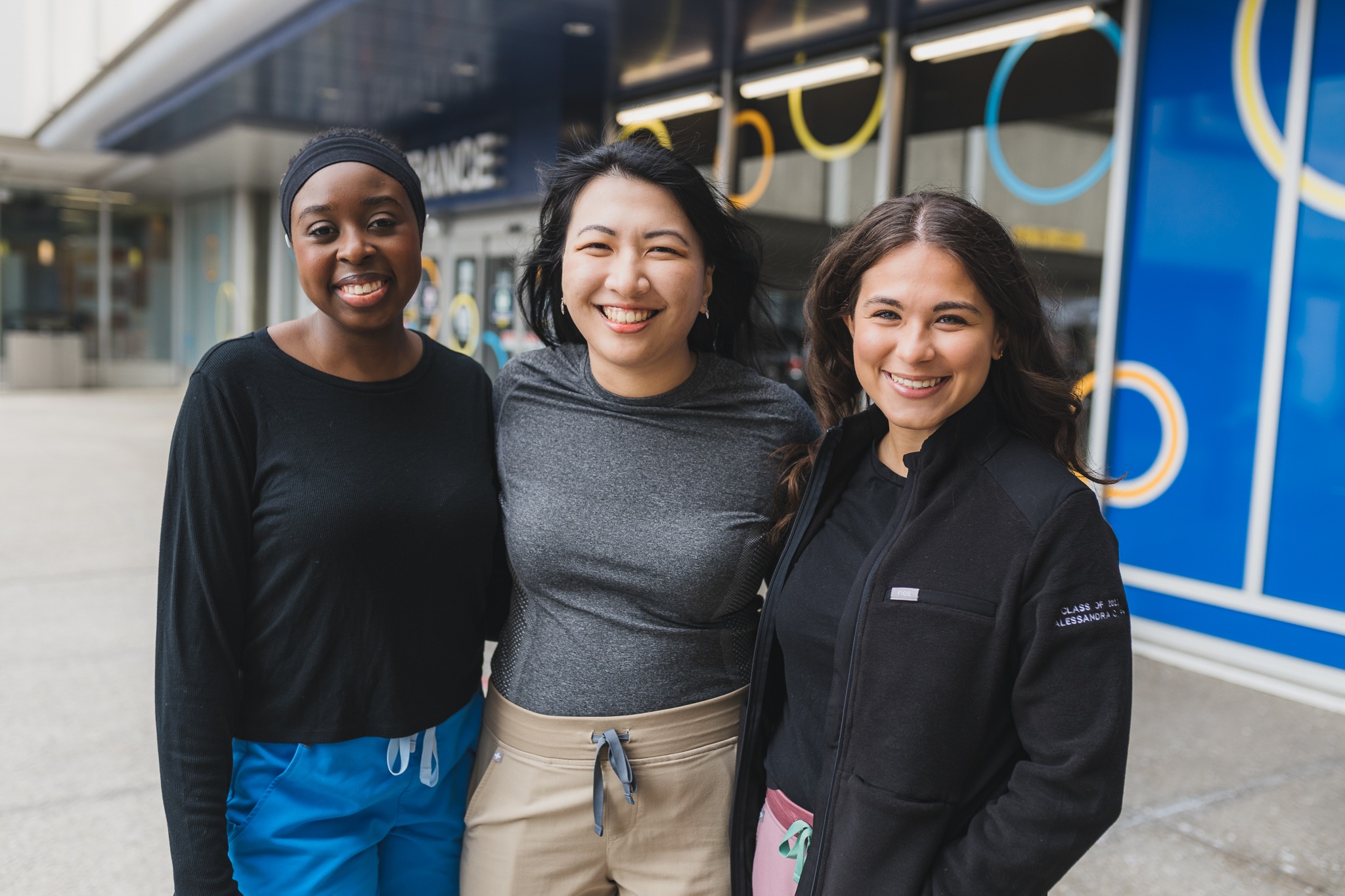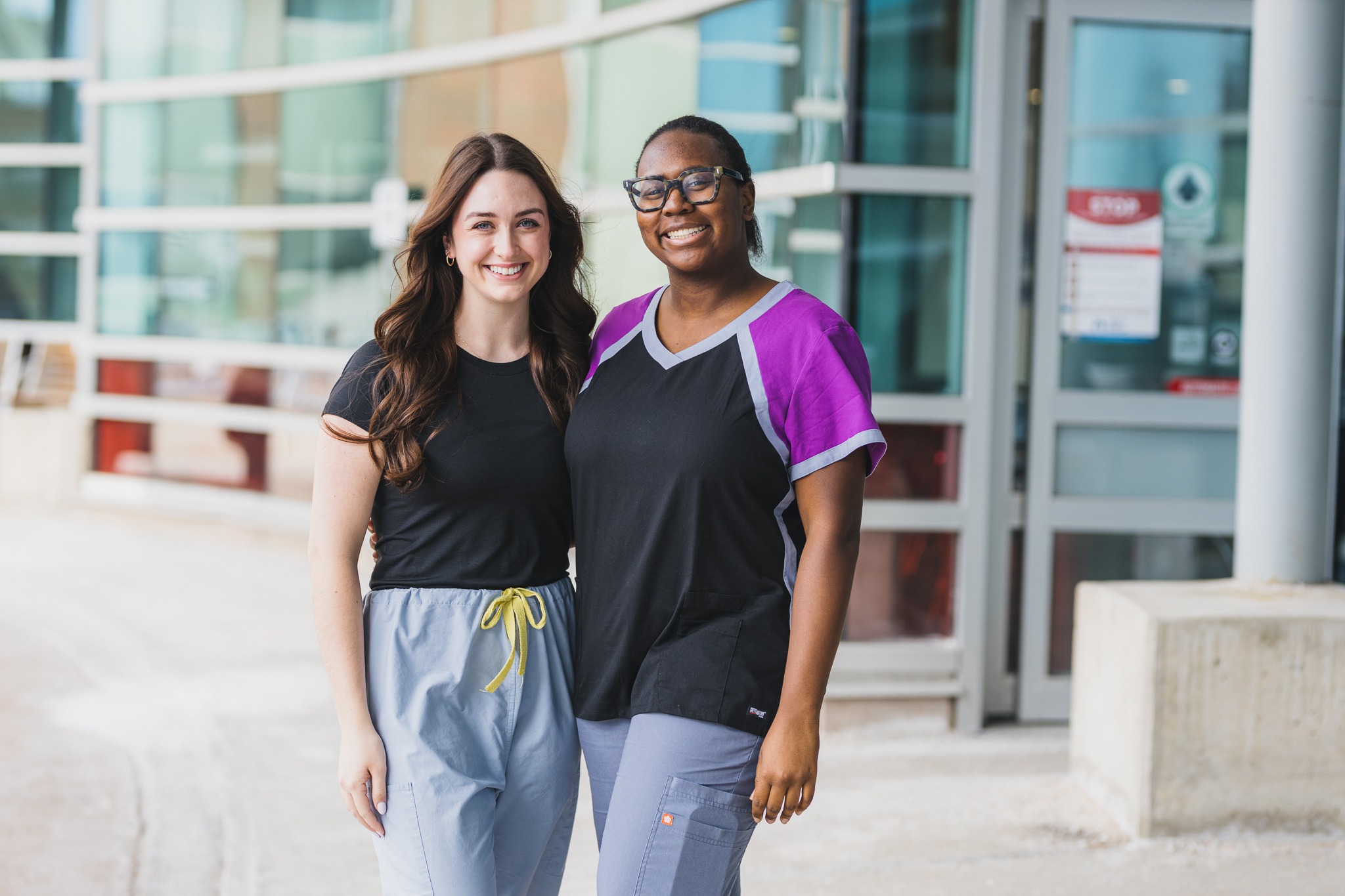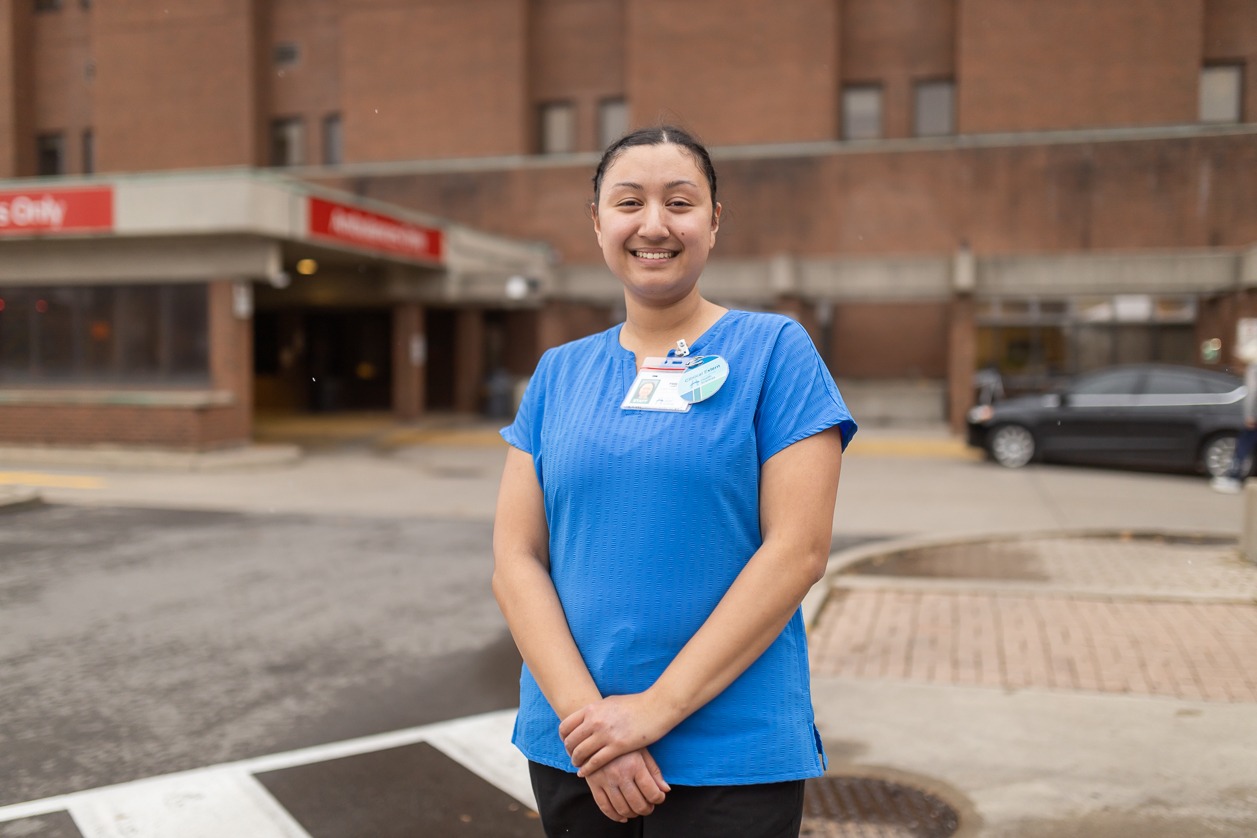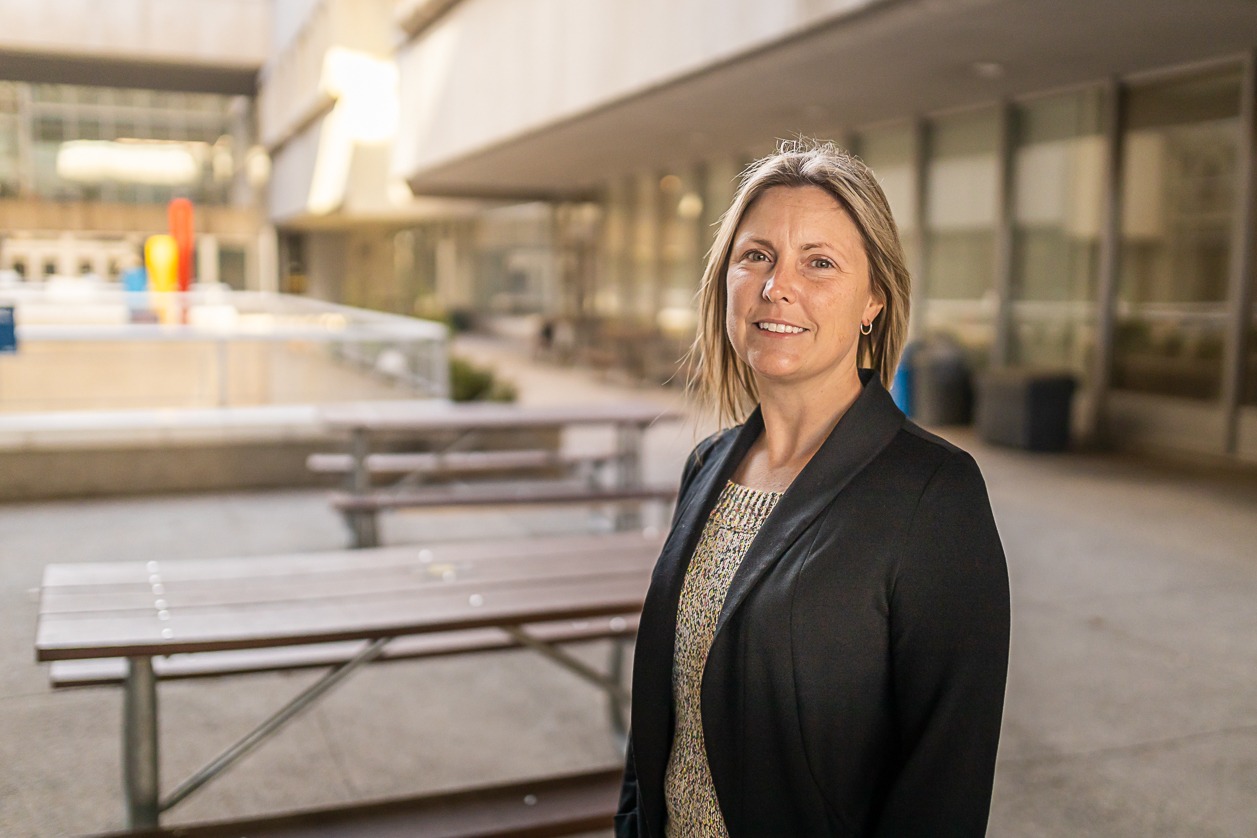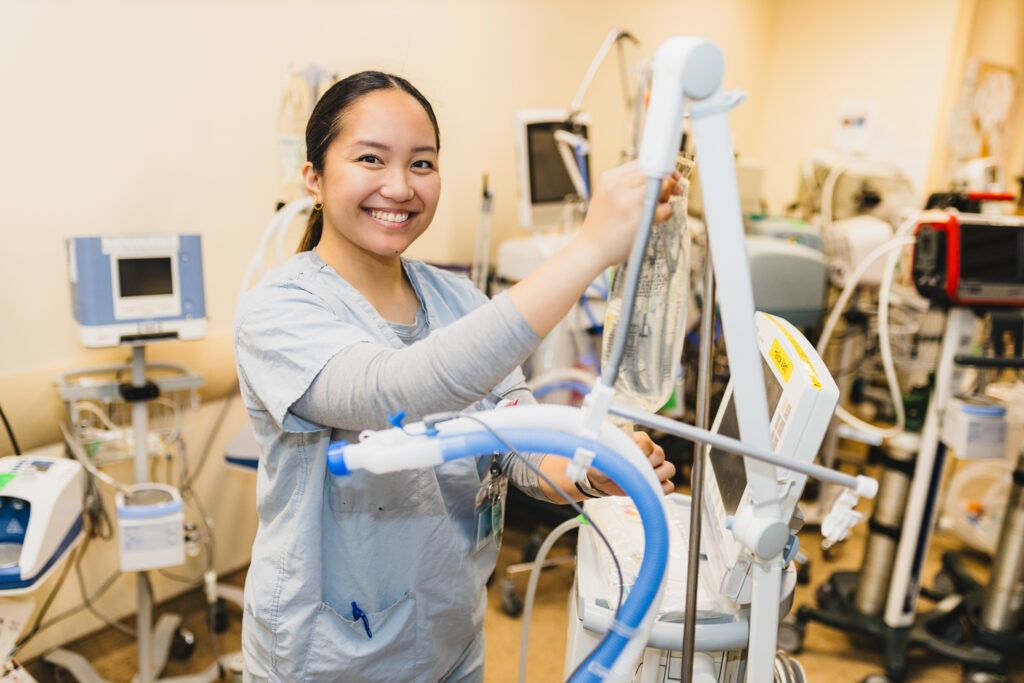
RT externs help patients breathe easier
Health Care: The Next Generation
Staffing shortages triggered by the pandemic continue to impact hospitals across the province, including Hamilton Health Sciences (HHS). One of the innovative ways that HHS is addressing shortages is through the provincially-funded clinical extern program, created by the province to provide additional health care support to hospitals.
Senior university and college students in respiratory therapy, physiotherapy, occupational therapy, nursing and paramedic programs can apply to work at HHS hospital sites as clinical externs. These students work at least one shift per week, with a typical shift being eight to 12 hours. Meet three HHS clinical externs who are working at HHS while earning diplomas in respiratory therapy.
Anum Ayaz, HHS Hamilton General Hospital ICU
“It was the perfect career for me.”
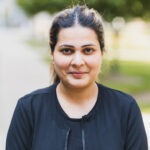 Even as a young child, HHS respiratory therapy extern Anum Ayaz knew she wanted to help people breathe easier.
Even as a young child, HHS respiratory therapy extern Anum Ayaz knew she wanted to help people breathe easier.
Respiratory therapists assess, monitor and treat patients who have difficulty breathing because of respiratory disorders.
“My father died when I was very young from a heart attack so my grandmother, who I like to call my second mom, moved in with our family to help my mother raise me and my four siblings,” says Ayaz, who lived in Pakistan until five years ago when she immigrated to Canada.
Ayaz’s grandmother developed chronic obstructive pulmonary disease (COPD), a chronic inflammatory lung disease that obstructs airflow from the lungs, making breathing difficult. Ayaz’s mother, a teacher, also struggled with breathing at times due to asthma.
When the time came to consider a career, Ayaz became an anesthesiology assistant in Pakistan. “Respiratory therapy wasn’t an option where I lived, so this was the next closest profession.”
After arriving in Canada, Ayaz looked into health-care careers here and discovered respiratory therapy. “It was the perfect career for me,” says Ayaz, who enrolled in the respiratory therapy program at Conestoga College where she has completed one year of the two-and-a-half year program. While in school, she’s also working as a respiratory therapy extern in HHS Hamilton General Hospital’s Intensive Care Unit (ICU).
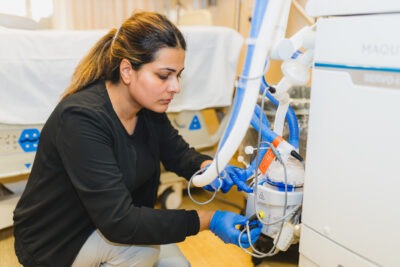
Anum Ayaz is a respiratory therapy extern HHS Hamilton General Hospital ICU
Over her summer break from school, Ayaz is working five shifts a week. When school starts back in the fall she plans to work one to two shifts a week.
“The extern role is a great opportunity for students like me who are passionate about their career because we get a chance to assist respiratory therapists in a hospital, and also see what our future will look like in this profession,” says Ayaz.
Typical tasks for externs include restocking supplies and cleaning and preparing ventilators before their next use. There are also many learning opportunities, including observing various respiratory therapy procedures.
“I am loving the experience,” says Ayaz. “I really appreciate the work culture at Hamilton Health Sciences. The people are amazing. They’re always available to help, support and teach us.”
Ayaz’s future goals include working with adult and elderly populations in a Canadian hospital or homecare setting and also setting up clinics in Pakistan for people like her mother and grandmother who struggle with respiratory illnesses. “I have this ambition. One day I will do it.”
Serena Di Nicola, HHS Juravinski Hospital ICU
“I feel like I’m learning something new every single day…”
 Serena Di Nicola studied biological sciences at University of Guelph, but hadn’t landed on a career path after graduating. So the animal lover worked in an emergency veterinary clinic for three years.
Serena Di Nicola studied biological sciences at University of Guelph, but hadn’t landed on a career path after graduating. So the animal lover worked in an emergency veterinary clinic for three years.
“I enjoyed the fast-paced environment, and while the clinic didn’t offer respiratory therapy it did provide other services including x-rays, emergency care and surgery. This got me thinking about other aspects of health care, on the human side, that I could explore.”
A neighbor, who’s a nurse, suggested respiratory therapy.
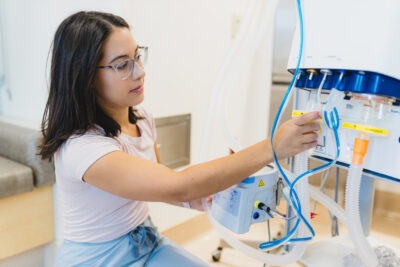
Serena Di Nicola is a respiratory therapy extern at HHS Juravinski Hospital ICU.
“Looking back to when I was in university, I didn’t really have a full picture of what was out there in terms of health-care career options. For example, I didn’t know that respiratory therapy was a profession. It took some years of researching to discover other career paths.”
Working in a vet clinic also helped Di Nicola learn more about herself. For example, she discovered that she enjoyed a fast-paced team environment, and dealing with seriously ill patients needing urgent care. She also found that she preferred specializing over general health care.
“The world of respiratory therapy is specific to the lungs, and it’s fast-paced, so it’s a career that really suits me,” she says
Di Nicola’s placement as an extern in Juravinski Hospital’s ICU is well-suited to her personality.
“I really like the work here,” she says. “I feel like I’m learning something new every single day, and everyone is super supportive.” Di Nicola is working two shifts per week during the summer, and will scale back to one shift every two weeks when she returns to school in the fall.
Rachel Janda-Luda, HHS McMaster Children’s Hospital PICU
“It’s amazing to see in person what I’ve only ever seen in text books.”
 Rachel Janda-Luda graduated from University of Toronto where she majored in health sciences and psychology, but wasn’t sure what career path to take. She took a year off after graduating, to figure out next steps, working at a Mississauga hospital as a patient services representative.
Rachel Janda-Luda graduated from University of Toronto where she majored in health sciences and psychology, but wasn’t sure what career path to take. She took a year off after graduating, to figure out next steps, working at a Mississauga hospital as a patient services representative.
“I knew I wanted to work in health care, but hadn’t found a field I was passionate about,” says Janda-Luda, 24, of Mississauga. When a friend suggested she look into respiratory therapy, Janda-Luda found her calling.
She’ll enter her second year at Conestoga College in September, studying respiratory therapy. She’s also working two shifts a week as a respiratory therapy extern in the pediatric intensive care unit (PICU) at HHS McMaster Children’s Hospital.
The extern role helps Janda-Luda stay ahead of her studies.
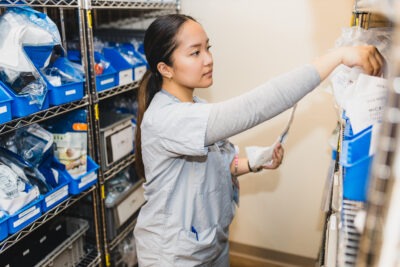
Rachel Janda-Luda is a respiratory therapy extern at HHS McMaster Children’s Hospital’s pediatric intensive care unit (PICU).
“I’m learning about aspects of the role that I won’t be taught in school until next semester,” she says. “For example, by restocking shelves I’m learning about equipment that I haven’t been introduced to through school yet. And I’m learning a lot about ventilators through the process involved in cleaning them and preparing them for the next patient.”
She’s also enjoying the team environment at HHS.
“The PICU teams are very open to teaching externs, and letting us observe when they’re performing procedures. It’s amazing to see in person what I’ve only ever seen in text books.”

